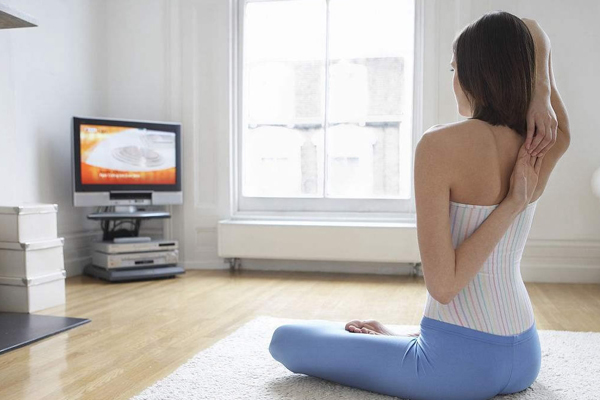Prolonged TV viewing may increase risk for blood clots
 |
|
Watching too much television increases the risk of potentially fatal blood clots, the preliminary findings of a new study suggest. [Photo/VCG] |
Watching too much television increases the risk of potentially fatal blood clots, the preliminary findings of a new study suggest.
The results presented Sunday at the American Heart Association (AHA) Scientific Sessions in Anaheim, California, said the risk increases with the amount of time spent watching television, even if people get the recommended amount of physical activity.
"Watching TV itself isn't likely bad, but we tend to snack and sit still for prolonged periods while watching," Mary Cushman, co-author of the study and professor of medicine at the Larner College of Medicine at the University of Vermont in Burlington, was quoted as saying in a news release.
Each year, it is estimated that between 300,000 to 600,000 people in the US develop venous thromboembolism (VTE), making it the most common vascular diagnosis after a heart attack or stroke.
 |
|
Watching too much television increases the risk of potentially fatal blood clots, the preliminary findings of a new study suggest. [Photo/VCG] |
Previous studies have found a link between prolonged TV viewing and heart disease involving blocked arteries. But according to researchers, this is the first study in a western population to look at VTE, blood clots in the veins of the legs, arms, pelvis and lungs.
Among 15,158 middle-aged, 45-64 years, participants in the Atherosclerosis Risk in Communities Study, researchers found that the risk of developing VTE for the first time was 1.7 times higher in those who reported they watch TV "very often" compared with those who watch TV "never or seldom."
"You could put a treadmill or stationary bike in front of your TV and move while watching, said Cushman, who is also the director of the Thrombosis and Hemostasis Program at the University of Vermont Medical Center. "Or you can delay watching TV by 30 minutes while you take a walk. If you must see your favorite show, tape it while you are out walking so you can watch it later, skipping the ads."
Besides avoiding prolonged TV watching, you can lower your risk of VTE by maintaining a healthy weight and staying physically active, researchers say.
According to the US Centers for Disease Control and Prevention (CDC), as many as 900,000 people could be affected (1 to 2 per 1,000) by DVT/PE each year in the United States.
AHA's Scientific Sessions, a premier global exchange of the latest advances in cardiovascular science for researchers and clinicians, attracts nearly 18,000 attendees, with a global presence from more than 100 countries.
 |
|
Watching too much television increases the risk of potentially fatal blood clots, the preliminary findings of a new study suggest. [Photo/VCG] |






















